Core Values
The following is from the Local Catch page:
Local Catch Network (LCN) is guided by a set of core values that aim to create a higher level of accountability and trust, both internally within the network and externally to the public, in order to advance community-based fisheries engaged in local and direct seafood marketing. The values reflect our collective aspirations and what we are working toward, not necessarily what is the current status quo. We define ‘values’ as standards of behavior or one’s judgement over what is important to our collective work. These value statements are intended to be addressed holistically and are not ranked according to importance.
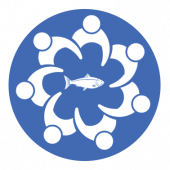
COMMUNITY BASED FISHERIES
Community-based fisheries enhance the social, ecological, and cultural fabric of our coastal communities. At the heart of community-based fisheries are community-based fishermen* who live and work in the communities where they fish. They are typically independent, owner-operators*, and are inherently committed to the long-term health of the marine ecosystem. Seafood supply chains and policies should foster and strengthen community-based fisheries.
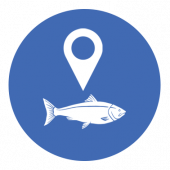
FAIR ACCESS
Community-based fisheries cannot survive without equitable access* to the ocean commons. Fisheries access should be kept affordable, available to future generations, and connected to the communities where they are fished. The ocean and its resources should be held in public trust and not privatized*.
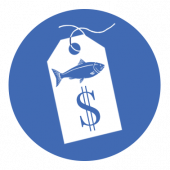
FAIR PRICING
Paying a fair price to fishermen, processors, and shore-side businesses helps support local economies and increases the quality of life for all those whose hands touch our fish. Community-based seafood should be available and affordable for all communities, and must be balanced against the needs and limits of the ocean as well as fishermen’s ability to sustain a livelihood with dignity and joy. Paying a fair price is also based on a conservation ethic where fishermen are able to attain higher value for lower volume of catch, which places less pressure on the fish stocks.
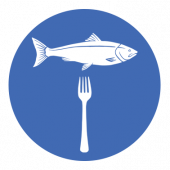
EATING WITH THE ECOSYSTEM
Eating with the ecosystem means matching our seafood consumption to the rhythms of nature and place. It means celebrating and respecting a region’s marine biodiversity by harvesting a diversity of seafood and respecting the unique seasonality of every species and fishery. It means appreciating the ocean as a complex ecological system and engaging and educating consumers to enable them to become conscious consumers of the ocean’s food production capacity.
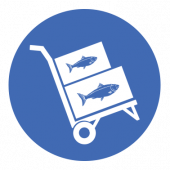
TRACEABLE AND SIMPLE SUPPLY CHAINS
Traceable and simple supply chains promote trust and a more direct relationship between fishermen, the public, consumers, retailers, wholesalers, managers and chefs. More direct and simple supply chains help maximize value to the fishermen and consumer. Information on who, how, where, and when a fish was caught, processed and distributed should be readily available to consumers. We encourage all seafood consumers to try local* first.
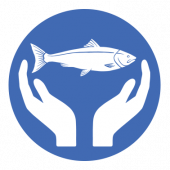
CATCH AND HANDLE WITH HONOR
Strict levels of quality control and safe handling practices, along the entire supply chain, to ensure that we honor the fish, its life, and its role in our food system. This also means minimizing waste by using the whole animal as much as possible, and educating consumers about how to make use of and care for the whole fish.
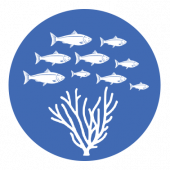
COMMUNITY AND ECOSYSTEM BASED FISHERIES MANAGEMENT
Fisheries management is key for maintaining sustainable fish stocks and livelihoods. Management should be bottom-up, ecosystem-based, and foster collaboration between fishermen, scientists, policy makers, and the broader public. Management should combat illegal fishing, consolidation, and privatization. Management should also address non-fishing impacts that threaten the health of our fisheries, such as climate change, ocean acidification, and pollution.
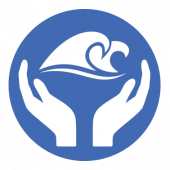
HONORING THE OCEAN
Seafood connects and incentivizes the broader public to care for marine ecosystems. By eating seafood and knowing who, what, when, and how a fish was caught, the public is taking the health of wild fisheries, coastal communities and the ocean into its own hands. Not only is the commitment to healthier marine ecosystems crucial, but it is also a moral imperative that ensures future generations will inherit a clean and healthy ocean.
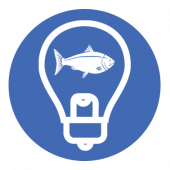
CREATIVITY AND COLLABORATION
Building a better seafood system requires innovation, creativity, and thinking outside the box. It also requires that innovative ideas are not isolated but rather spread through a network of diverse stakeholders working together, aligning around shared values, and acting. Creativity and networking fosters knowledge sharing, collective understanding, and mentorship needed to build a better future.
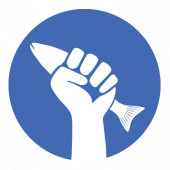
EQUITABLE SEAFOOD SYSTEMS
The marginalization of any peoples, including those in fishing communities, is rooted in a long history of racism, exclusion and oppression. Access to catch, harvest, and eat culturally appropriate, wholesome seafood must not be determined based on race, income, gender, class, cultural background, and ethnicity. By lifting up business models who are most impacted by injustice, we move toward better serving the entire community. As the Local Catch Network, we will continually question our own practices and keep an open ear to new and familiar voices to ensure we are best serving our communities.
If you would like to help organizations Like the Local Catch Network, Nama and AMCC continue their work, please donate:
NAMA: https://namanet.org/donate/
AMCC: https://www.akmarine.org/
Also Please Check out:
https://dontcageouroceans.org/
Newsletter
Subscribe to get special offers, action alerts and access to new products. We promise to send emails you will love.
